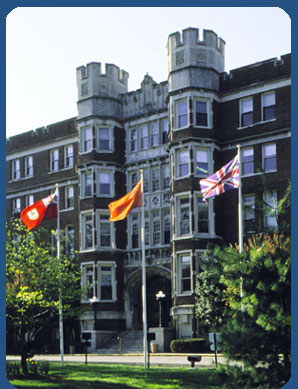| Women's Intellectual Contributions to the Study of Mind and Society Students, as part of an advanced seminar, examined and wrote about the lives of these women,
their intellectual contributions, and the unique impact and special problems that being female had
on their careers. |  |
| For information about referencing this paper - Click Here |
Anna Roe (1904- )
by Jenn Bumb
Anna Roe was born in Denver, Colorado in 1904 to parents who were
struggling financially. She was the second of four siblings and took on
much of the housework while getting her education. This continued up
until her Masters Program in Psychology and Education at the University
of Denver. Even though she was much needed at home, her parents
encouraged her to go away for graduate school. She stated, "My parents'
support was as much understood as expressed, and perhaps particularly as
their never having suggested that it might be helpful if I stayed home
for a few more years." The most influential person in her life was her
brother, who at the age of four, brought home a neighbor friend George
Gaylord Simpson. Thus began the development of a close friendship which
lasted until college and was later resumed, culminating into marriage
and many co-professional endeavors. Even as a wife of an eminent
paleontologist and functioning in many professional roles, Roe still
provided an influential environment to raise four daughters who sought
atypical occupational roles. Two daughters became Ph.D.'s, one daughter
died shortly before gaining her degree in Library Science and the fourth
became a writer, poet and oral historian.
Roe's ambitions weren't atypical when she entered the University of
Denver, she wanted to be an English teacher of high school students.
However, she happened to meet a psychologist named Thomas Garth. He
offered this, whom he felt was a gifted woman, a graduate assistantship
for the two years necessary to complete the Master's degree at the
University of Denver. Even more, he used his influence with Thorndike
at Columbia University Teachers College to obtain employment there for
her. With it came the opportunity to study under Woodworth at
Columbia's Division of Arts and Sciences and to earn a doctorate in
Psychology.
During World War II, Roe's husband was in the Army and his pay was
considerably less than it had been in civilian life. Thus, her
financial contribution to the family became very important. As time
went on she grew to love her profession and became very successful at
it. She received the Award for Distinguished Service in 1972 by the
Clinical Psychology Division of the American Psychological Association.
She was made Professor Emerita at Harvard University, she was awarded
the rank of full professor in 1963-the ninth woman to achieve it in the
three-hundred years of Harvard's existence. Most of all, it "pleased
her enormously" to find out both she and her husband were listed in the
World Who's Who in Science.
Among her titles are researcher, mother, teacher and
administrator. The main focus of her work have included the study of
intellectual functions in normal, aphasic and mentally disordered
adults; behavior of newborn infants; the status of foster children from
different backgrounds; the effects of alcohol consumption; personalities
of artists and scientists; the psychology of occupations and of
creativity; and the relationship between behavior and evolution as well
as that between early experience and career patterns.
In 1980, she suffered from bad heart trouble and was forced to bring
her long and wide-ranging professional career to an end.
References
- Angrist, S. S., & Almquist, E. (1975). Careers and contingencies: How
College women juggle with gender. New York: Dunellen.
- Broverman, I. K., Vogel, S. E., & Rosenkrantz, P. S. (1972). Sex-role
stereotypes: A current appraisal. Journal of Social Issues,
28, 59-78.
- Centers, R. (1948). Motivational aspects of occupational
stratification. Journal of Social Psychology, 28, 187-217.
- Frieze, I. H., Parsons, J. E., Johnson, P. B. & Ruble, D. N. (1978).
Women and sex roles: A social psychological perspective. New
York: Norton.
- Roe, A. (1972). Womanpower: How is it different? New York: Columbia
University Press.
- Roe, A. (1972). Perspectives on vocational development. Washington,
D.C.: American Personnel and Guidance, Association.
- Roe, A. (1956). The psychology of occupations. New York: John Wiley.
- Roe, A. (1970). A survey of alcohol education in elementary and high
schools in the United States. Quarterly Journal of Studies on
Alcohol, 3, 3-132.
- Simpson, E.L. (1980). Occupational Endeavor as life history: Anna
Roe. Psychology of Women Quarterly, 5, 116-126.
Back to Women's Page
